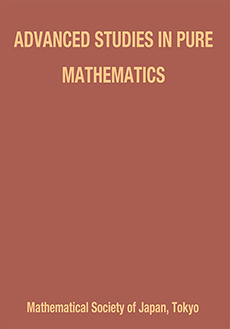Abstract
We will look at the Catalan numbers from the Rigged Configurations point of view originated [10] from an combinatorial analysis of the Bethe Ansatz Equations associated with the higher spin anisotropic Heisenberg models. Our strategy is to take a combinatorial interpretation of the Catalan number $C_n$ as the number of standard Young tableaux of rectangular shape $(n^2)$, or equivalently, as the Kostka number $K_{(n^2),1^{2n}}$, as the starting point of our research. We observe that the rectangular (or multidimensional) Catalan numbers $ C(m,n)$, introduced and studied by P. MacMahon [23], [34], see also [35], can be identified with the corresponding Kostka numbers $K_{(n^m),1^{mn}}$, and therefore can be treated by the Rigged Configurations technique. Based on this technique we study the stretched Kostka numbers and polynomials, and give a proof of a strong rationality of the stretched Kostka polynomials. This result implies a polynomiality property of the stretched Kostka and stretched Littlewood–Richardson coefficients [8], [28], [17]. Finally, we give a brief introduction to a rigged configuration version of the Robinson–Schensted–Knuth correspondence.
Another application of the Rigged Configuration technique presented, is a new family of counterexamples to Okounkov's log-concavity conjecture [27].
Finally, we apply Rigged Configurations technique to give a combinatorial proof of the unimodality of the principal specialization of the internal product of Schur functions. In fact we prove a combinatorial (fermionic) formula for generalized $q$-Gaussian polynomials which is a far generalization of the so-called $KOH$-identity [26], as well as it manifests the unimodality property of the $q$-Gaussian polynomials.
Information
Digital Object Identifier: 10.2969/aspm/07610303


